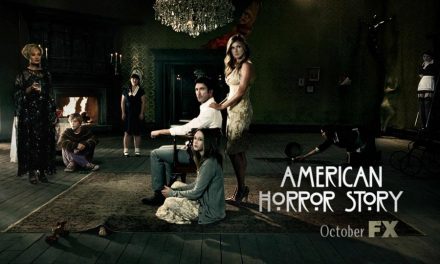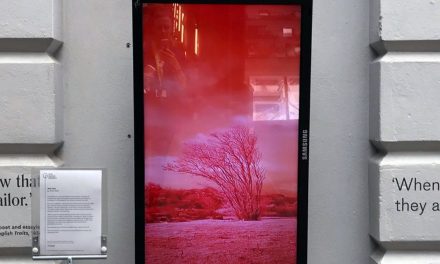Co-editors: Gábor Gergely, Júlia Havas, Victoria K. Pistivsek
What is “Europe”? The term is far from self-evident. The emerging canon of Eastern European decolonial sociological scholarship shows that Europe is the product of the far-reaching legacies of global colonialism and ongoing ideological, cultural, and geopolitical contestations (Baker et al. 2024; Boatcă and Parvulescu 2020; Böröcz 2021). As a continent and idea, Europe carries different meanings dependent on conflicting power relations and identity positions, making it ‘an Andersonian community’ imagined by its own and others’ cultural output (Gergely and Hayward 2022, 7). Given that the transnational production cultures of the multiplatform era (Dunleavy and Weissmann 2023) have been largely driven by North American media corporations, mythologized global imaginaries of Europeanness tend to function as ‘business as usual’ (Imre 2023, 1580). Indeed, as has also been shown for example in relation to Canada (Walls 2023) and Morocco (Higbee et al. 2022) as service production hubs for Hollywood, Europe serves as a complex nexus of recognition and misrecognition in the American imagination (Negra 2001).
This special issue homes in on American prestige TV of the last decade, in which the use of European locations, characters and plotlines has become more frequent and taken on, this special issue will contend, special significance. We argue that recent prestige TV originating in multiplatform production imagines a notional Americanness through fantasies of Europeanness to assert its own continued relevance and make its claim to exceptionality, novelty, and social and political meaning-making in the streaming era. The context for this is ‘crisis ordinariness’ (Berlant 2011) and ‘permacrisis’ (Turnbull 2022) both inside and outside the media industries. Among such overlapping crises, from Trump and AI to genocides and climate breakdown, American TV has also specifically faced intensified pressures since the “Netflix effect” and the global covid pandemic profoundly upset “legacy” television and cinema practices (Hargraves 2024; Jenner 2018; Lotz 2018; McDonald and Smith-Rowsey 2016; etc.). We posit then that within this context of change, televisual fantasies about Europe become complex sites for negotiating those amplified anxieties the US has about itself and others, particularly tribalistic boundaries of ‘inside/outside, same/different, closeness/distance’ (Joyrich 2024, 11). To this end, American prestige TV repeatedly invokes the so-called “Continent” as a mythicized space which manifests in White American hegemony through conflicting ideas of ethnic and cultural heritage, oppression and obsolescence, and socio-political veneration and aversion. That is to say, American prestige television series such as Atlanta (FX, 2016–2022), Emily in Paris (Netflix, 2020-), Ted Lasso (Apple TV+, 2020–23), The White Lotus (HBO, 2021–), Ripley (Netflix, 2024), and beyond use Europe as a site which allows them to grapple with a dysfunctional, damaged, or otherwise exceptional Americanness.
The articles collected in this special issue ask, paraphrasing Negra (2001, 3), what functions mediated ideas of the ‘various Europes’ (Gergely and Hayward 2022, 3) serve in the American televisual imaginary today. Building on and expanding the substantial scholarly corpus which has analysed Hollywood cinema’s appropriation of the European Other (Gergely 2012 and 2022; Lunde 2011; Negra 2001; Phillips and Vincendeau 2006; etc.), this special issue examines the ways in which prestige television’s long-form narrational practices construct distinct American fantasies of Europe, Europeans, and Europeanness to imagine cross-Atlantic differences and similarities and their ideological stakes. In this sense, the question is not simply whether and how the foreign European is dehumanized or exoticized (that is, represented), but how Europe as an apparently nominally foreign region of the world, one which historically, ethnically, politically, and culturally still anchors the identities of many Americans, is put to use to address and redress contemporary US anxieties.
We apply a de-westernizing lens to fill a scholarly gap in debates on prestige television’s use of Europe and Europeans to show that the corpus under examination is preoccupied with ideas of Europe that establish it as linguistically, politically, and culturally foreign in and for the American imaginary. In this de-westernizing and decolonial spirit we decentre US-UK-Ireland relations in our examination of American ideas of Europeanness. These countries’ established “special relationship” which rhetorically renders the Channel wider than the Atlantic, has already received ample attention in media studies (e.g. Brickman et al. 2020; Negra 2006; Weissmann 2012). This special issue will take up recent American programmes that conjure up powerful images of Europeanness in friction with Americanness, and in this way not only construct and reveal their own image of Europe, but through this, of their ideas of America. In this way the special issue makes a contribution beyond television and media studies to current political debates in regard to the faltering-fracturing military, economic and cultural alliances between the US and Europe as Russia, China, India, Iran and other non/state actors seek to remake a formerly notionally solid Western-dominated world order.
To expand our scope and complement our approach we invite proposals for contributions of up to 7,500 words (including footnotes and references) on contemporary American prestige television’s fantasies of Europe, Europeans and/or Europeanness. An indicative list of programmes includes Ted Lasso, The White Lotus, Ripley, Emily in Paris and The Bear (FX, 2022-); but contributions may focus on any recent American-made series understood by any definition to fall under the prestige TV category. They should engage with the concepts and critical geographical, linguistic, and political framing elaborated above, but should seek to apply their own theoretical perspectives and understandings of “Europe” in American prestige TV. By considering a variety of genres, production practices, and geographic imaginaries of Europe, the special issue will reveal the varied and conflicting ways that Europeanness is produced in contemporary American prestige television, and the articles will de-westernize television studies’ critical transnationalism, as well as hold a mirror up to prevailing mediated fantasies about American hegemony and televisual prestige.
Please submit abstracts of around 300 words, along with brief bios to imaginingusineurope25@gmail.com by 25 April, 2025.
Notifications of acceptance will be sent by 13 June, 2025.
The deadline for full articles is 30th January, 2026.
For questions and enquiries please email imaginingusineurope25@gmail.com.
References
Baker, Catherine, Bogdan C. Iacob, Anikó Imre, and James Mark, eds. 2024. Off White: Central and Eastern Europe and the Global History of Race. Manchester: Manchester University Press.
Berlant, Lauren. 2011. Cruel Optimism. Durham and London: Duke University Press.
Boatcă, Manuela, and Anca Parvulescu. 2020. “Creolizing Transylvania: Notes on Coloniality and Inter-imperiality.” History of the Present 10 (1): 9–27. https://doi.org/10.1215/21599785-8221398.
Böröcz, József. 2021. “‘Eurowhite’ Conceit, ‘Dirty White’ Ressentiment: ‘Race’ in Europe.” Sociological Forum 36 (4): 1116–1134. https://doi.org/10.1111/socf.12752.
Brickman, Barbara Jane, Deborah Jermyn, and Theodore Louis Trost, eds. 2020. Love Across the Atlantic: US–UK Romance in Popular Culture. Edinburgh: Edinburgh University Press.
Dunleavy, Trisha, and Elke Weissmann, eds. 2023. TV Drama in the Multiplatform Era: Transnational Coproduction and Cultural Specificity. Cham: Palgrave Macmillan.
Gergely, Gábor. 2012. Foreign Devils: Exile and Host Nation in Hollywood’s Golden Age. New York: Peter Lang.
———. 2022. Schwarzenegger: Uses of the Foreign Star. Cham: Palgrave Macmillan.
———, and Susan Hayward, eds. 2022. The Routledge Companion to European Cinema. Abingdon and New York: Routledge.
Hargraves, Hunter. 2024. “Introduction: Pandemic TV, Then and Now.” In “Pandemic TV,” ed. Hargraves. Special Issue, Television & New Media: 1–13. https://doi.org/10.1177/15274764241251765.
Higbee et al. 2022. Moroccan Cinema Uncut: Decentred Voices, Transnational Perspectives. Edinburgh: Edinburgh University Press.
Imre, Anikó. 2023. “Illiberal White Fantasies and Netflix’s The Witcher.” Journal of Ethnic and Migration Studies 49 (6): 1570-1587. https://doi.org/10.1080/1369183X.2022.2156324.
Jenner, Mareike. 2018. Netflix and the Re-Invention of Television. Cham: Palgrave Macmillan.
Joyrich, Lynne. 2024. “Regression/Progression: Two Cases of COVID Television.” In “Pandemic TV,” ed. Hunter Hargraves. Special Issue, Television & New Media: 1–12. https://doi.org/10.1177/15274764241251751.
Lotz, Amanda D. 2018. We Now Disrupt This Broadcast: How Cable Transformed Television and the Internet Revolutionized It All. Cambridge and London: The MIT Press.
Lunde, Arne. 2011. Nordic Exposures: Scandinavian Identities in Classical Hollywood Cinema. Seattle and London: University of Washington Press.
McDonald, Kevin, and Daniel Smith-Rowsey, eds. 2016. The Netflix Effect: Technology and Entertainment in the 21st Century. New York and London: Bloomsbury Academic.
Negra, Diane. 2001. Off-White Hollywood: American Culture and Ethnic Female Stardom. London and New York: Routledge.
———, ed. 2006. The Irish in Us: Irishness, Performativity, and Popular Culture. Durham and London: Duke University Press.
Phillips, Alastair, and Ginette Vincendeau, eds. 2006. Journeys of Desire: European Actors in Hollywood, A Critical Companion. London: British Film Institute.
Turnbull, Neil. 2022. “Permacrisis: What It Means and Why it’s Word of the Year for 2022.” The Conversation, November 11, 2022. https://theconversation.com/permacrisis-what-it-means-and-why-its-word-of-the-year-for-2022-194306.
Walls, Rachel, ed. 2013. World Film Locations: Vancouver. Bristol and Chicago: Intellect Books.
Weissmann, Elke 2012. Transnational Television Drama: Special Relations and Mutual Influence Between the US and the UK. Abingdon and New York: Palgrave Macmillan.
Co-Editor Bios
Júlia Havas is Senior Lecturer in Film and Television at the University of York. She is the author of Woman Up: Invoking Feminism in Quality Television (Wayne State UP 2022). She has published on Anglo-American television, the gender and race politics of popular media, streaming culture, Eastern European film and TV, and the transcultural travel of media in the journals Television and New Media, MAI, VIEW, Animation Studies, and various edited collections.
Victoria K. Pistivsek is a PhD researcher and graduate teaching assistant in the Department of Film Studies at King’s College London. Her doctoral project explores hegemonic masculinity, divisive politics, and abject laughter in post-2016 American television.
Gábor Gergely is Associate Professor of Film Studies at the University of Lincoln. He is the author of monographs Foreign Devils (2012), Hungarian Film 1929-1947 (2017), and Schwarzenegger (2022). He has published extensively on a range of European national cinemas, on foreign stardom and Europeanness in Anglophone media and edited The Routledge Companion to European Cinema (2022) with Susan Hayward and the Stardom in Eastern European Cinema special issue of Studies in Eastern European Cinema (2022).





